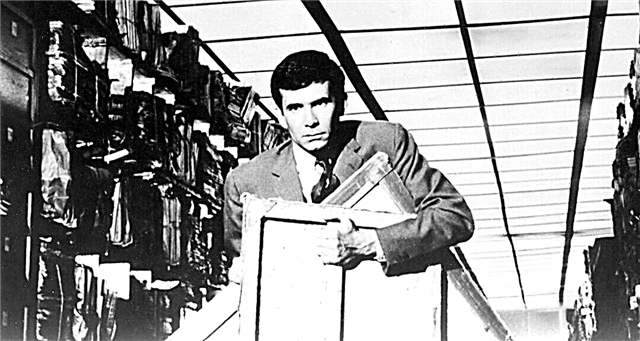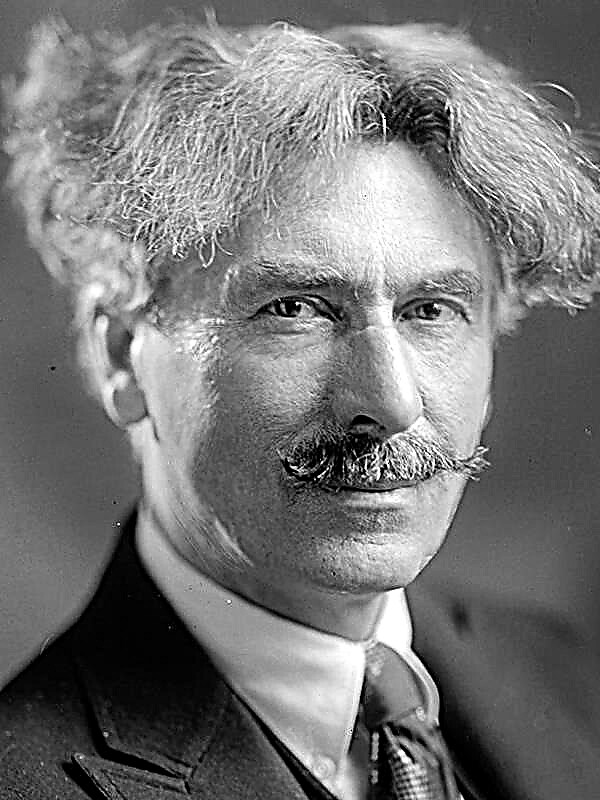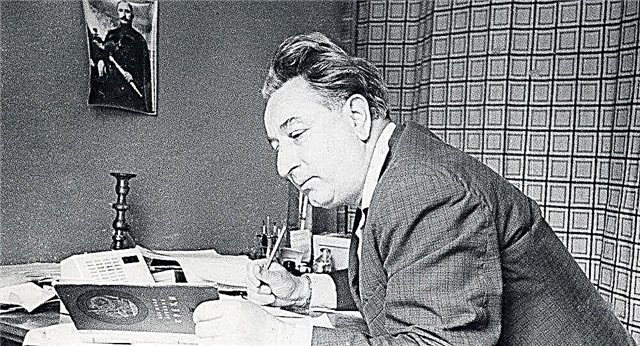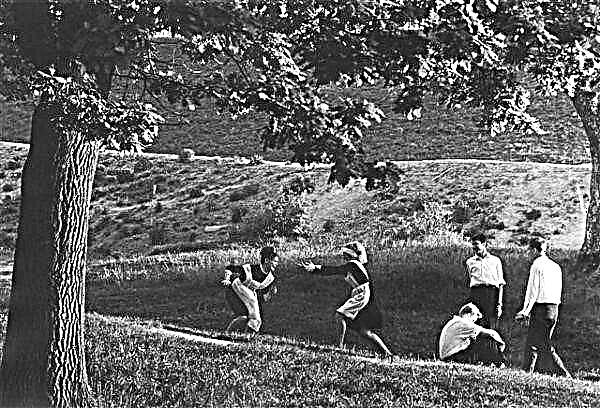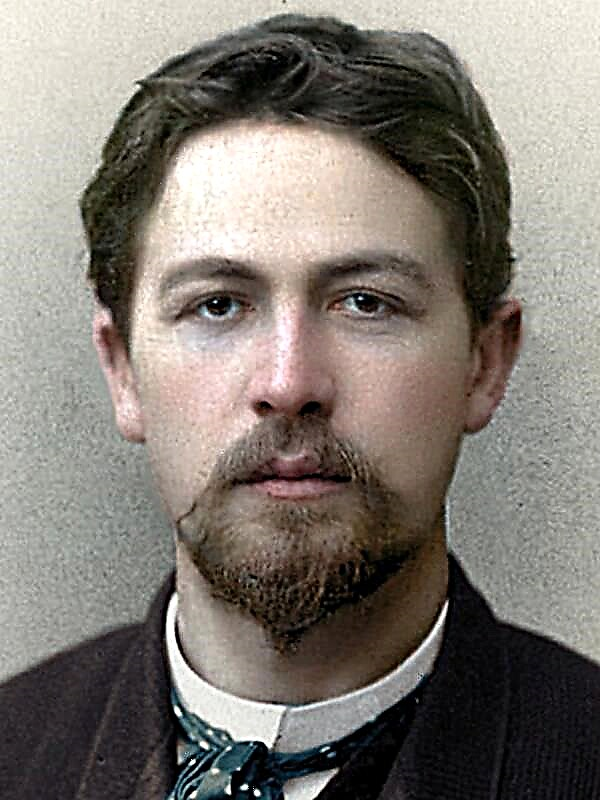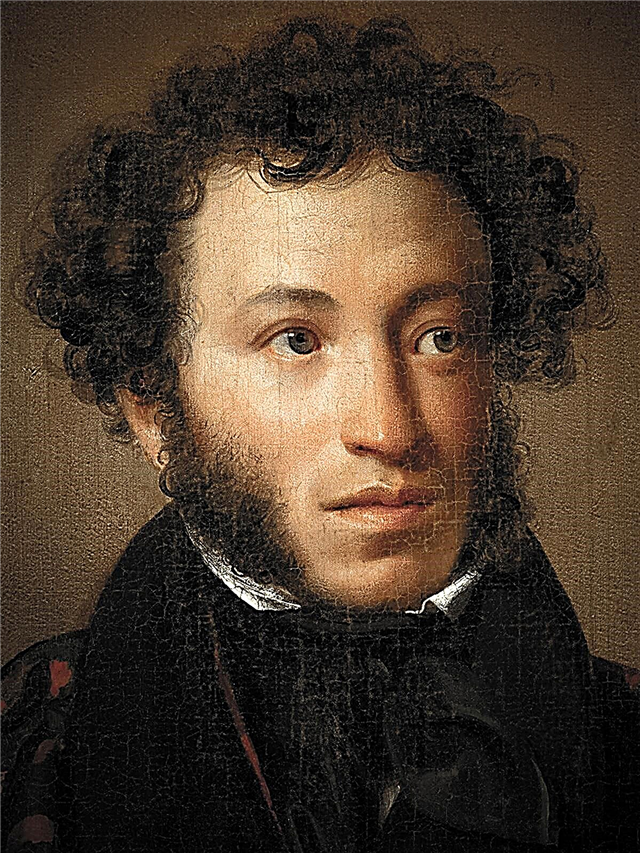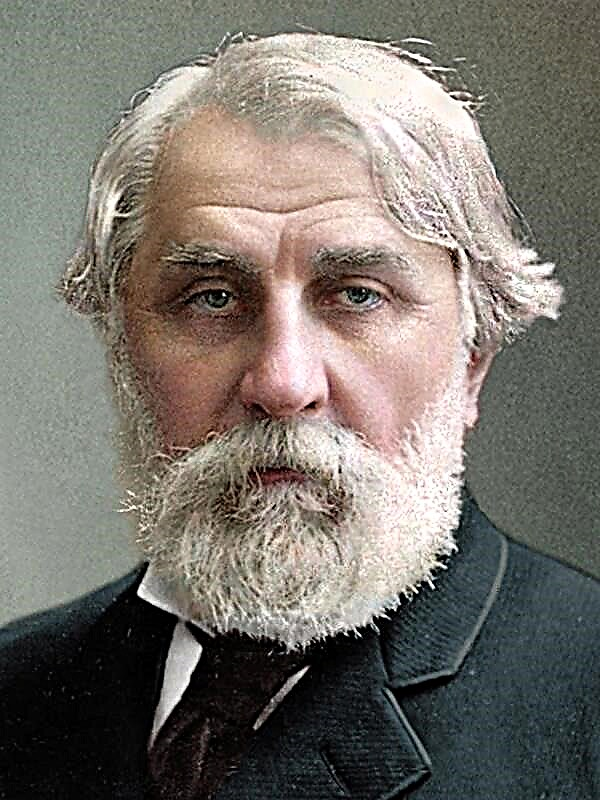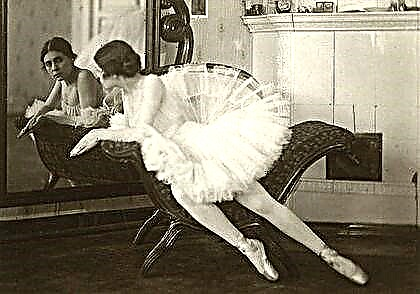The play takes place overnight in London, in the house of Lord Windermere and his wife, and in a bachelor apartment occupied by Lord Darlington in the early 1890s.
The main character of the play - Margaret, Lady Windermere - we find in a small living room a family mansion a few hours before the reception in honor of her birthday: Margaret is twenty-one years old. A young mother and a happy wife, she seems to be a caressed fate and a confident woman, graciously, albeit with a touch of secular rigor, accepting the gallant courtship of one of her husband’s friends - the dandy of a dandy and principled loafer of Lord Darlington, whose “meaningful” name is hardly presented by author to a character by accident. However, on this day, his intonations are more serious and excited than usual, and the brilliant aphorisms and misty half-hints of the interlocutor lead her to a sense of slight confusion.
This feeling is replaced by confusion and anxiety when, for a while, saying goodbye to the mistress of the house, Lord Darlington gives way to Windermere’s old acquaintance - the Duchess of Berwick, accompanied by a young daughter. A charming lady of an undetermined age, spewing secular stupidity from a cornucopia, feignedly sympathetic (like, however, the majority of Wilde’s heroes, who manage to keep good commandments and question them at the same time) complain about her husband’s reprehensible behavior several times in the week of visiting a certain Mrs. Erlyn, a person with a dubious reputation ("Many women have a past, but they say they have at least a dozen ..."), for which he even rented luxury apartments in a fashionable quarter. Selflessly devoted to her husband, brought up by an aunt in the spirit of strict Puritan morality (in early childhood, she lost both parents) Margaret perceives this news as thunder from a clear sky. At first, not wanting to believe the talkative interlocutor, she is painfully convinced of her innocence, secretly glancing at her husband's bank book.
This occupation is what Lord Windermere finds her, to the horror of Margaret, he not only does not refute the bald, as she hopes, libels, but also demands from the wife truly impracticable: demonstrating the friendly participation in the "woman with the past," whom he intended to help restore what was lost once a position in the London world, Lord Windermere insisted that Margaret send Mrs. Erlyn an invitation to her evening party. She refuses indignation; then Lord Windermere personally writes an invitation. Having lifted from the sofa a fan presented to her by her husband on her birthday, the heroine swears that she will publicly insult “this woman”, as soon as she dares to cross the threshold of her house. Lord Windermere is desperate: he cannot, does not dare to tell his wife the whole truth about Mrs. Erlyn and his relationship with her.
A few hours later, much to the surprise of a motley, secular crowd, busy with idle gossip and easy flirting, the latter really appears, exuding an aura of disarming courtesy and the habitual ability to command the opposite sex, Margaret lacks the spirit to offend her rival; it remains for her to be powerless to watch how she captivates first the old bachelor of Lord Augustus, and then of Lord Windermere. With indignation, Lord Darlington, who oversees all this, finally discards the mask of the weary Epicurean and eagerly convinces Margaret to leave her husband and reciprocate his feelings. She hesitates; in response, he states that he will leave England immediately and that she will never see him again.
Depressed, as if the puppet of the acting hostess of the ball, Margaret manages to hear a snippet of a conversation between Mrs. Erlyn and Lord Windermere: it appears from him that Mrs. Erlyn intends to marry Lord Augustus, and the share of Lord Windermere remains to ensure her a comfortable financial existence. Completely discouraged, Margaret writes a farewell letter to her husband and disappears from the house.
The letter is accidentally discovered and read by Ms. Erlyn, who has returned from the terrace. She is in genuine horror: “Or does life still repeat its tragedies? .. These same words I wrote to her father twenty years ago!” Only at that moment is the mystery completely revealed to the viewer, linking in an ambiguous tangle the relations of Lord Windermere, his young wife and the mysterious “woman with the past”: Mrs. Erlyn - Margaret's mother; and Lord Windermere, the initiate of this secret, in obedience to human and kinship duty, supports her, but is not authorized to disclose even his beloved wife incognito his newly-chosen “chosen one”.
Having mastered herself, she hides the letter and leaves the mansion, intending to intercept Margaret in Lord Darlington’s apartment and dissuade her from the fateful step.
The tension reaches its climax when, in the bachelor’s cloister of a sophisticated lover of worldly pleasures, Mrs. Erlyn catches Margaret, who is trembling from the irreparableness of the taken step and is already beginning to repent. She turns to the girl with a passionate speech, warning against cruelty of the upper world, who does not forgive mistakes, recalling conjugal and maternal duty. The heroine is crushed by the consciousness of her own guilt before her husband; and when the “rival” incomprehensible to her claims that she has found and taken with her the letter she left on the table, her indignation has no limit. But Mrs. Erlyn knows how to navigate in extreme situations: she throws a letter into the fire, repeating: “Even if he throws you, it’s still your place near your child ...” Something thaws in a puritanical nature of an impeccably honest girl who succumbed a burst of passion and wounded pride. She is ready to surrender, to return home, but at that moment ...
At this moment, male voices are heard: several men decided to drop into the abode of Lord Darlington for a short while after visiting the club, including a notable wit Cecil Graham, Lord Augustus and ... Lord Windermere. Margaret is hiding behind the curtain, Mrs. Erlyn is in the next room. A sparkling exchange of remarks follows about everything and about nothing, and suddenly Cecil Graham discovers Lady Windermere's fan dropped on the couch. The owner of the house belatedly realizes what really happened, but is powerless to do anything. Lord Windermere menacingly demands explanations from him, in the midst of which Mrs. Erlyn bravely appears from the next room. There should be general confusion: neither her potential fiance, Lord Augustus, nor her official fan, Lord Windermere, nor Lord Darlington himself could suspect her presence. Taking advantage of the moment, Margaret quietly slips out of the room.
The next morning, the febrile boiling of passions is replaced by a soothing calm. Now Lord Windermere, who has remained in ignorance, is asking for forgiveness from his beloved wife, condemning Mrs. Erlyn: “She is a bad woman, she is“ incorrigible ”; the same asks him to show more tolerance and condescension. “In women who are called good,” she says, “there’s a lot of scary - reckless outbursts of jealousy, stubbornness, sinful thoughts. And those, the so-called evil women, are capable of torment, repentance, pity, self-sacrifice. " When the butler announces that he is asking Lady Windermere for an audience ... Mr. Erlyn, Lord Windermere becomes again indignant, but not for long: she says that she is going to leave England forever. Left alone with Margaret, he asks her for a photograph with her young son and ... a fan. And when the main character in passing notices that she bears the name of her mother, she slightly opens the curtain on the mystery: it turns out that her name is also Margaret. Mrs. Erlyn warmly says goodbye and leaves. A few minutes later, as if nothing had happened, her narrowed Lord Augustus appeared, declaring that, in spite of everything, they intend to soon be married. So everything is resolved to the common pleasure.

